
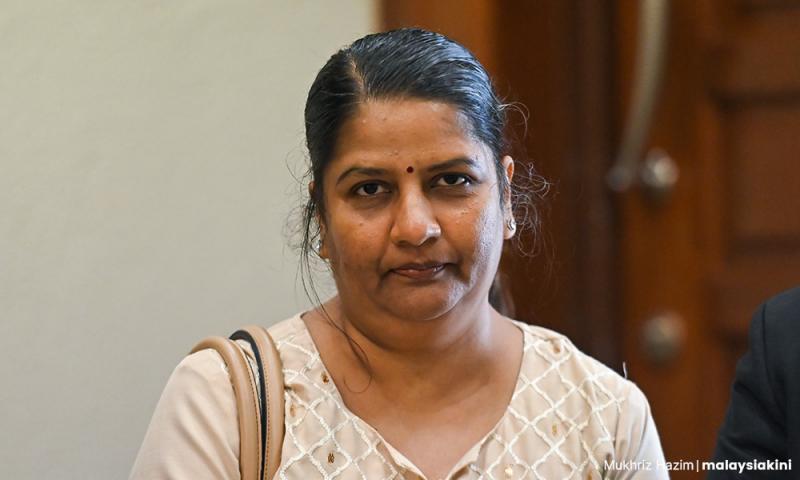

Indira's legal battle for 16 years: A mum looks for her child
Zarrah Morden
Published: Nov 11, 2025 7:00 AM
Updated: 11:18 AM
M Indira Gandhi has been inextricably linked to the discourse on forceful religious conversion since 2009, when she turned to the courts after her husband unilaterally converted their three children to Islam.
Her recently renewed demands for the authorities to locate her youngest daughter, Prasana Diksa, have culminated in a “justice march” scheduled for Nov 22 in Kuala Lumpur, from the Sogo shopping complex to the Bukit Aman police headquarters.
Malaysiakini recaps her case for readers new to the issue.
A father converts his kids
Indira married Riduan Abdullah, then a Hindu with the name of Patmanathan Krishnan, in April 1993. They had three children together.
The beginning of 2009 was marked with frequent disagreements between the couple, and on March 31 that year, Riduan forcibly took Prasana away. The child was 11 months old at the time and still nursing.
Published: Nov 11, 2025 7:00 AM
Updated: 11:18 AM
M Indira Gandhi has been inextricably linked to the discourse on forceful religious conversion since 2009, when she turned to the courts after her husband unilaterally converted their three children to Islam.
Her recently renewed demands for the authorities to locate her youngest daughter, Prasana Diksa, have culminated in a “justice march” scheduled for Nov 22 in Kuala Lumpur, from the Sogo shopping complex to the Bukit Aman police headquarters.
Malaysiakini recaps her case for readers new to the issue.
A father converts his kids
Indira married Riduan Abdullah, then a Hindu with the name of Patmanathan Krishnan, in April 1993. They had three children together.
The beginning of 2009 was marked with frequent disagreements between the couple, and on March 31 that year, Riduan forcibly took Prasana away. The child was 11 months old at the time and still nursing.
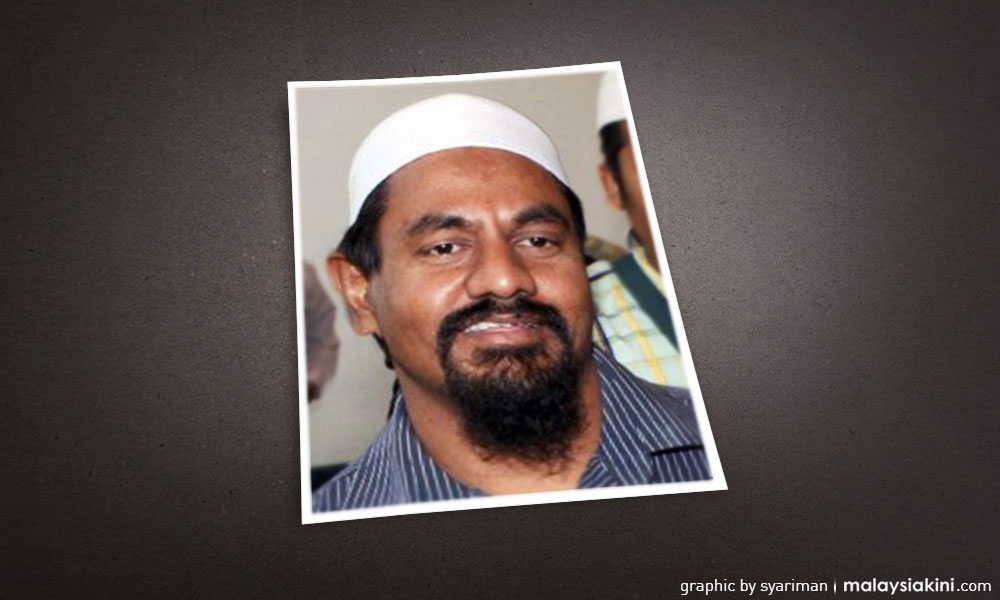
Riduan Abdullah
Indira lodged a police report against him. The police soon informed her that Riduan had converted to Islam. He converted on March 11.
Fearing he would convert their other children, she applied to the Ipoh High Court for an interim custody order and an injunction against the removal of the children.
Unknown to her, he converted the children on April 2.
Riduan also obtained an interim custody order from the Perak Syariah Court on April 8.
On Sept 29, the Syariah Court granted Riduan permanent custody of the children.
Indira turned to the civil courts to overturn her children’s unilateral conversion and secure their custody.
Indira lodged a police report against him. The police soon informed her that Riduan had converted to Islam. He converted on March 11.
Fearing he would convert their other children, she applied to the Ipoh High Court for an interim custody order and an injunction against the removal of the children.
Unknown to her, he converted the children on April 2.
Riduan also obtained an interim custody order from the Perak Syariah Court on April 8.
On Sept 29, the Syariah Court granted Riduan permanent custody of the children.
Indira turned to the civil courts to overturn her children’s unilateral conversion and secure their custody.
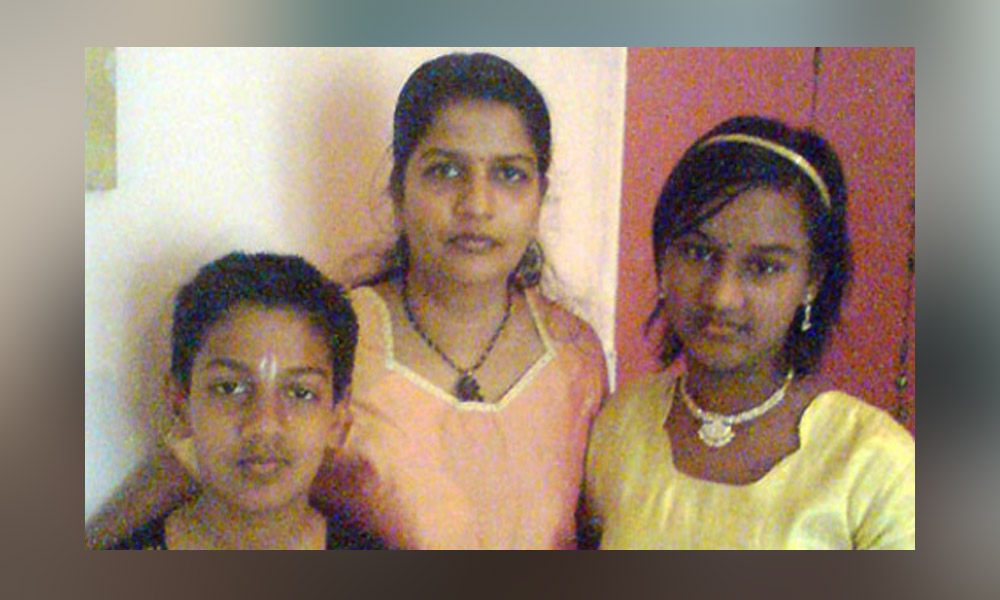
M Indira Gandhi and her children, circa 2010
High Court rules in Indira’s favour
On March 11, 2010, the Ipoh High Court ruled in Indira’s favour, granting her full custody of the children and providing Riduan with weekly visitation rights.
Despite this and other judicial decisions, Riduan never returned Prasana to Indira.
A judicial review on July 25, 2013, saw judge Lee Swee Seng quashing the certificates of conversion for the three children.
In his decision at the Ipoh High Court, Lee also ruled that the consent of both parents is needed for the conversion of a child to Islam.
He dismissed the preliminary objection that the syariah courts held jurisdiction over the case, pointing to the Federal Court precedent set in the 2007 case of Latifah Mat Zin v Rosemawati Sharibun and another.
According to the earlier case, the syariah courts have no jurisdiction if one of the parties is a non-Muslim, even if the subject matter falls within the purview of the syariah courts.
On May 30, 2014, the Ipoh High Court reached another decision - it voided the Syariah Court’s custody order to Riduan on the basis that it had overstepped its jurisdiction.
High Court rules in Indira’s favour
On March 11, 2010, the Ipoh High Court ruled in Indira’s favour, granting her full custody of the children and providing Riduan with weekly visitation rights.
Despite this and other judicial decisions, Riduan never returned Prasana to Indira.
A judicial review on July 25, 2013, saw judge Lee Swee Seng quashing the certificates of conversion for the three children.
In his decision at the Ipoh High Court, Lee also ruled that the consent of both parents is needed for the conversion of a child to Islam.
He dismissed the preliminary objection that the syariah courts held jurisdiction over the case, pointing to the Federal Court precedent set in the 2007 case of Latifah Mat Zin v Rosemawati Sharibun and another.
According to the earlier case, the syariah courts have no jurisdiction if one of the parties is a non-Muslim, even if the subject matter falls within the purview of the syariah courts.
On May 30, 2014, the Ipoh High Court reached another decision - it voided the Syariah Court’s custody order to Riduan on the basis that it had overstepped its jurisdiction.
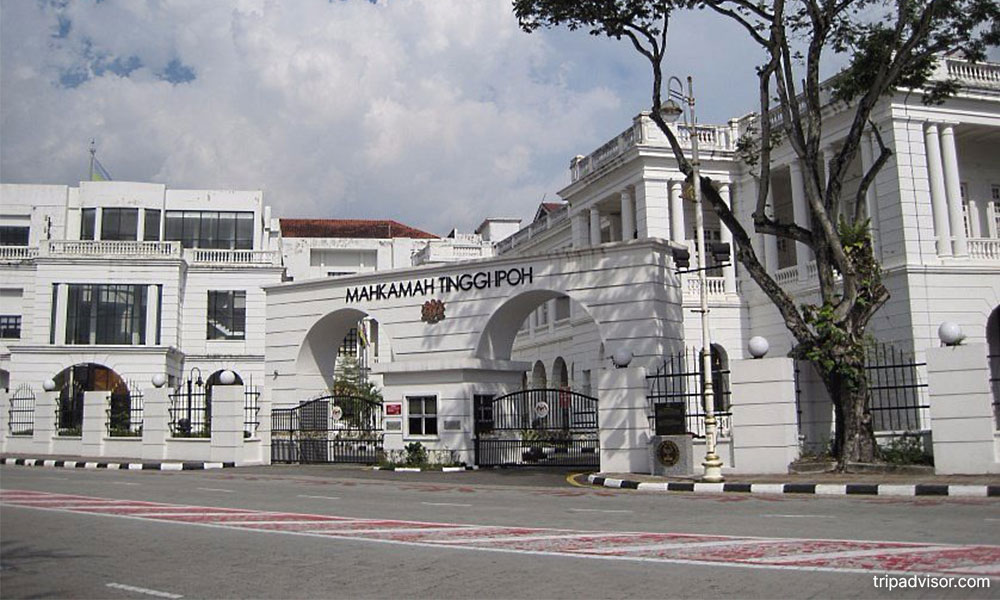
Ipoh High Court
In this case, Lee issued an order committing Riduan to the Tapah Prison until the return of Prasana to Indira. This was due to contempt of court for not honouring the 2010 custody decision.
He gave Riduan a week to bring Prasana to Indira or face a jail term. Riduan defied the order, failing to carry it out by the deadline at noon on June 6, 2014.
Police decide not to act
On June 10, then inspector-general of police (IGP) Khalid Abu Bakar said the police will not act on custody orders in interfaith custody cases to prevent cops from being “sandwiched” between opposing orders from the civil and syariah courts.
On June 12, the Ipoh High Court issued another order, instructing the police to submit monthly updates on their progress in arresting Riduan and recovering Prasana.
At the end of the month, following inaction from the police, Indira filed a mandamus order to compel Khalid to arrest Riduan and return Prasana to her.
This resulted in another stream of cases involving Indira and Khalid.
The Ipoh High Court allowed a judicial review application for the order on Sept 12. The Attorney-General’s Chambers (AGC) proceeded to file an appeal on Khalid’s behalf against the mandamus order.
In this case, Lee issued an order committing Riduan to the Tapah Prison until the return of Prasana to Indira. This was due to contempt of court for not honouring the 2010 custody decision.
He gave Riduan a week to bring Prasana to Indira or face a jail term. Riduan defied the order, failing to carry it out by the deadline at noon on June 6, 2014.
Police decide not to act
On June 10, then inspector-general of police (IGP) Khalid Abu Bakar said the police will not act on custody orders in interfaith custody cases to prevent cops from being “sandwiched” between opposing orders from the civil and syariah courts.
On June 12, the Ipoh High Court issued another order, instructing the police to submit monthly updates on their progress in arresting Riduan and recovering Prasana.
At the end of the month, following inaction from the police, Indira filed a mandamus order to compel Khalid to arrest Riduan and return Prasana to her.
This resulted in another stream of cases involving Indira and Khalid.
The Ipoh High Court allowed a judicial review application for the order on Sept 12. The Attorney-General’s Chambers (AGC) proceeded to file an appeal on Khalid’s behalf against the mandamus order.
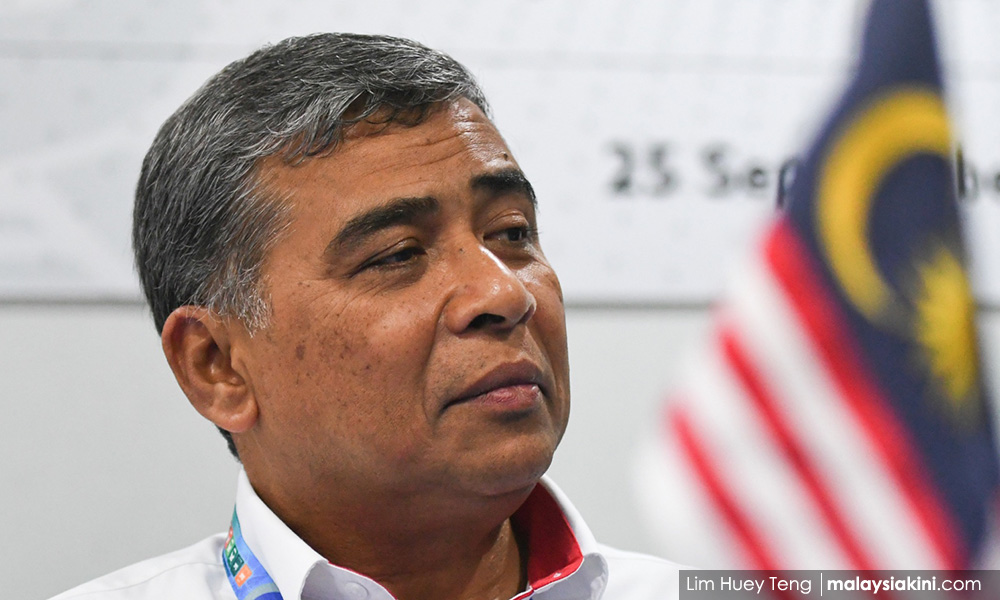
Former inspector-general of police Khalid Abu Bakar
On Dec 17, the Court of Appeal in a 2-1 majority decision rejected the order. The judicial panel, chaired by judge Abdul Aziz Ab Rahim, ruled that the court could not act on the order as it involved a private matter.
Judge Ahmadi Asnawi said Indira had not exhausted all legal avenues to find her daughter, while judge Tengku Maimun Tuan Mat dissented, saying that the High Court judge did not err in issuing the order.
The following year, on April 22, 2015, the Federal Court gave Indira leave to appeal the dismissal of the mandamus order.
It also struck out Riduan’s bid to purge his contempt of court.
Regardless, Indira soon faced another roadblock, as an appeal against the 2013 Ipoh High Court decision went through.
Apellate court affirms conversion
On Dec 30, 2015, the Court of Appeal overruled the High Court’s decision on the unilateral conversion of Indira’s children.
According to the Malay Mail, it was a majority 2-1 decision that the civil courts had no jurisdiction over the conversion of the children, with judges Balia Yusof Wahi and Badariah Sahamid saying the matter fell exclusively within the syariah courts’ purview.
They said the High Court decision had overlooked Section 101 of the Administration of the Religion of Islam (Perak) Enactment 2004 in ruling that the conversion certificates of the children were null and void.
“In our view, in the absence of any evidence to the contrary and in the absence of any challenge to the said certificates, which must be done or taken in the Syariah Court, the said certificates remain good,” they said.
The judges added that the eldest daughter, who had reached 18 years of age by this point, had the right to choose her religion.
The dissenting judge, Hamid Sultan Abu Backer, argued that “hybrid” cases involving a Muslim and a non-Muslim should go to civil courts.
Federal court allows Indira’s appeal
But the next year, Indira saw a breakthrough in her case against Khalid.
On April 29, 2016, the Federal Court allowed her appeal to reinstate the mandamus order issued by the Ipoh High Court compelling Khalid to execute the warrant of committal against Riduan.
The five-person bench, chaired by Raus Sharif, found the committal order against Riduan to be justified as he failed to bring Prasana to the jurisdiction of the court.
The apex court directed the Ipoh High Court to monitor the arrest.
On Dec 17, the Court of Appeal in a 2-1 majority decision rejected the order. The judicial panel, chaired by judge Abdul Aziz Ab Rahim, ruled that the court could not act on the order as it involved a private matter.
Judge Ahmadi Asnawi said Indira had not exhausted all legal avenues to find her daughter, while judge Tengku Maimun Tuan Mat dissented, saying that the High Court judge did not err in issuing the order.
The following year, on April 22, 2015, the Federal Court gave Indira leave to appeal the dismissal of the mandamus order.
It also struck out Riduan’s bid to purge his contempt of court.
Regardless, Indira soon faced another roadblock, as an appeal against the 2013 Ipoh High Court decision went through.
Apellate court affirms conversion
On Dec 30, 2015, the Court of Appeal overruled the High Court’s decision on the unilateral conversion of Indira’s children.
According to the Malay Mail, it was a majority 2-1 decision that the civil courts had no jurisdiction over the conversion of the children, with judges Balia Yusof Wahi and Badariah Sahamid saying the matter fell exclusively within the syariah courts’ purview.
They said the High Court decision had overlooked Section 101 of the Administration of the Religion of Islam (Perak) Enactment 2004 in ruling that the conversion certificates of the children were null and void.
“In our view, in the absence of any evidence to the contrary and in the absence of any challenge to the said certificates, which must be done or taken in the Syariah Court, the said certificates remain good,” they said.
The judges added that the eldest daughter, who had reached 18 years of age by this point, had the right to choose her religion.
The dissenting judge, Hamid Sultan Abu Backer, argued that “hybrid” cases involving a Muslim and a non-Muslim should go to civil courts.
Federal court allows Indira’s appeal
But the next year, Indira saw a breakthrough in her case against Khalid.
On April 29, 2016, the Federal Court allowed her appeal to reinstate the mandamus order issued by the Ipoh High Court compelling Khalid to execute the warrant of committal against Riduan.
The five-person bench, chaired by Raus Sharif, found the committal order against Riduan to be justified as he failed to bring Prasana to the jurisdiction of the court.
The apex court directed the Ipoh High Court to monitor the arrest.
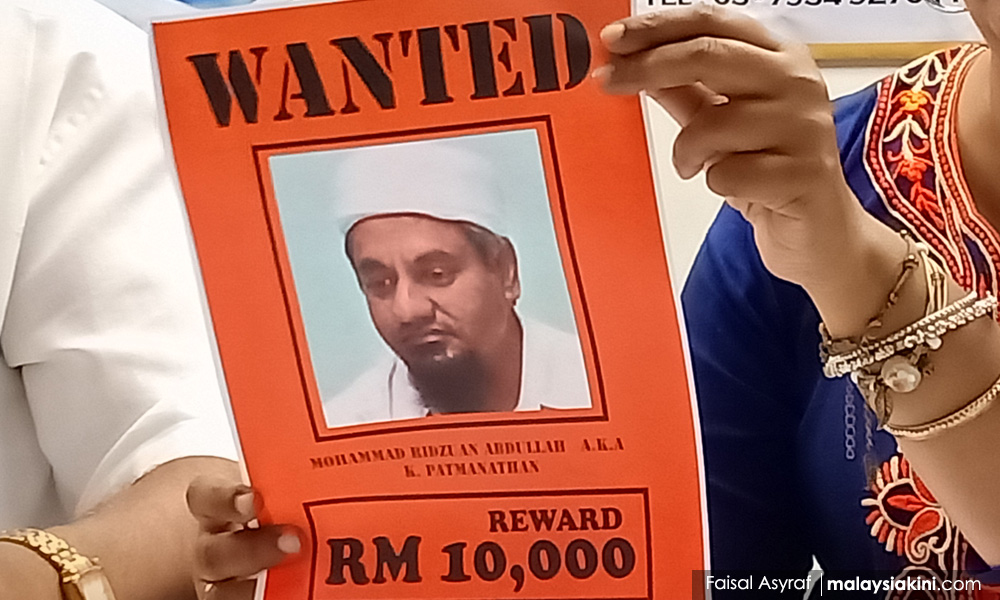
Raus, who wrote the unanimous decision, also had some harsh words for Riduan, saying the latter’s behaviour in refusing to come to the court’s jurisdiction when it decided against him “cannot be condoned by the court as this brings the administration of justice into disrepute”.
However, he disagreed with the High Court granting the recovery order to retrieve the child.
This, Raus said, followed the decision of the Ipoh Syariah High Court, which had granted the custody of the children to the father.
Hence, the court found the police acted rightly in not abiding by the High Court order due to the conflicting orders.
Consent of both parents needed
Indira’s cases on the unilateral conversion of her children came to an end on Jan 29, 2018, when the Federal Court ruled that the consent of both parents was needed to change the faith of a child.
Judge Zulkefli Ahmad Makinudin, who led the bench, said the decision was unanimous, stressing that it was not swayed by the judges’ religious convictions despite the topic of unilateral conversions being a contentious issue.
In reading the 99-page decision, judge Zainun Ali ruled that the civil court has jurisdiction to review the actions of the Registrar of Muallafs (Muslim converts) if there is illegality.
This set aside the decision by the Court of Appeal in 2015.
It also marked a departure from the 2007 verdict in the case of R Subashini vs T Saravanan, which saw the wife being instructed to seek recourse through the Syariah Appeals Court over her convert husband converting their children to Islam without her consent.
Legal action against conversion laws
Following this decision, Indira and 13 others filed a lawsuit against eight laws enabling unilateral conversion to Islam in seven states, as well as in the federal territories, at the Kuala Lumpur High Court in 2023.
They contended that the enactments are invalid for contravening Articles 12(4) and 75 of the Federal Constitution, as well as the 2018 Federal Court ruling that the consent of both parents was needed to change the faith of a child.
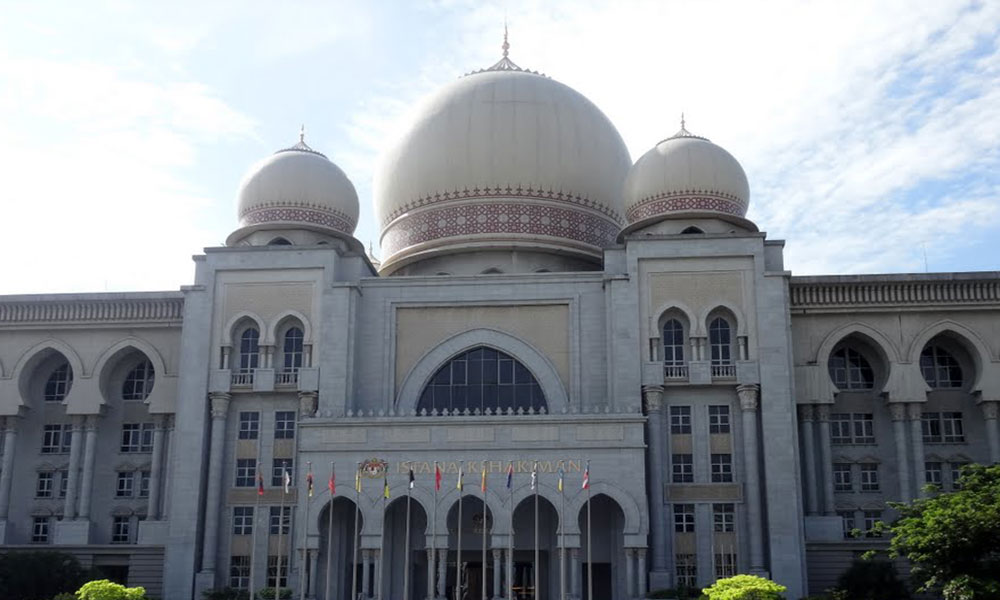
Federal Court housed in the Palace of Justice, Putrajaya
The 2018 decision in Indira’s case interpreted “parent” in Article 12(4) as “parents” if both are still alive.
Article 12(4) states, “The religion of a person under the age of 18 years shall be decided by his parent or guardian”.
A report by The Edge stated the matter will be heard in the High Court before judge Aliza Sulaiman on Feb 3, 2026.
Indira’s civil suit fails
On Oct 28, 2020, Indira filed a civil lawsuit against Khalid, the police, the Home Ministry and the Malaysian government, seeking RM100 million in compensation.
It was alleged that Khalid failed to follow the two orders issued by the Ipoh High Court on May 30, 2013, for the arrest of Riduan and the return of Prasana.
Indira also sought a declaration from Khalid that he performed the tort of nonfeasance by failing to perform his mandatory duty in carrying out the two orders.
She further sought a declaration from the police, Home Ministry, and the government that they were vicariously liable for Khalid’s tort of nonfeasance.
In June 2024, the Kuala Lumpur High Court dismissed her suit after finding that Hamid and the police had exercised their duties in executing the Federal Court’s mandamus order.
Judicial commissioner Raja Ahmad Mohzanuddin Shah Raja Mohzan ruled that the police had been trying and were still trying to track down Riduan.
He said that the evidence does not show that the IGP committed the tort of nonfeasance, as there was no existence of malice or bad faith on the part of the authorities in their so-far unsuccessful attempt to track down the Muslim convert.
He added that this was not as if Indira’s ex-husband was roaming around Kuala Lumpur, or any other area, in plain sight of the police, and the force not taking action despite noticing him.
On Aug 11, 2025, the Court of Appeal heard that the police do not owe Indira a duty of care in the case involving the search for Riduan and Prasana.
Senior federal counsel Nur Ezdiani Roleb told the panel of judges, led by Zaini Mazlan, that the police’s duty of care is only applicable to those within their custody.
A duty of care refers to a legal or moral obligation to avoid causing harm to others.
Missing but allegedly using govt aid
Last month, a social media post ignited scrutiny of the police and AGC’s handling of the case, alleging that Riduan remains in Malaysia and has been benefiting from government programmes such as Budi95 and Rahmah Necessities Aid (Sara).
The X post referenced a 2016 statement issued by the Ipoh police seeking to establish the whereabouts of Riduan, with the statement detailing the man’s identification card number.
The 2018 decision in Indira’s case interpreted “parent” in Article 12(4) as “parents” if both are still alive.
Article 12(4) states, “The religion of a person under the age of 18 years shall be decided by his parent or guardian”.
A report by The Edge stated the matter will be heard in the High Court before judge Aliza Sulaiman on Feb 3, 2026.
Indira’s civil suit fails
On Oct 28, 2020, Indira filed a civil lawsuit against Khalid, the police, the Home Ministry and the Malaysian government, seeking RM100 million in compensation.
It was alleged that Khalid failed to follow the two orders issued by the Ipoh High Court on May 30, 2013, for the arrest of Riduan and the return of Prasana.
Indira also sought a declaration from Khalid that he performed the tort of nonfeasance by failing to perform his mandatory duty in carrying out the two orders.
She further sought a declaration from the police, Home Ministry, and the government that they were vicariously liable for Khalid’s tort of nonfeasance.
In June 2024, the Kuala Lumpur High Court dismissed her suit after finding that Hamid and the police had exercised their duties in executing the Federal Court’s mandamus order.
Judicial commissioner Raja Ahmad Mohzanuddin Shah Raja Mohzan ruled that the police had been trying and were still trying to track down Riduan.
He said that the evidence does not show that the IGP committed the tort of nonfeasance, as there was no existence of malice or bad faith on the part of the authorities in their so-far unsuccessful attempt to track down the Muslim convert.
He added that this was not as if Indira’s ex-husband was roaming around Kuala Lumpur, or any other area, in plain sight of the police, and the force not taking action despite noticing him.
On Aug 11, 2025, the Court of Appeal heard that the police do not owe Indira a duty of care in the case involving the search for Riduan and Prasana.
Senior federal counsel Nur Ezdiani Roleb told the panel of judges, led by Zaini Mazlan, that the police’s duty of care is only applicable to those within their custody.
A duty of care refers to a legal or moral obligation to avoid causing harm to others.
Missing but allegedly using govt aid
Last month, a social media post ignited scrutiny of the police and AGC’s handling of the case, alleging that Riduan remains in Malaysia and has been benefiting from government programmes such as Budi95 and Rahmah Necessities Aid (Sara).
The X post referenced a 2016 statement issued by the Ipoh police seeking to establish the whereabouts of Riduan, with the statement detailing the man’s identification card number.

Budi95 government aid programme
The post also referred to a 2020 report where the Home Ministry said police investigations found that Riduan was no longer in the country.
Checks by Malaysiakini on the Budi95 and Sara platforms, using the IC number linked to Riduan, found that the account had fully utilised the one-off RM100 Sara cash aid and nearly 100 litres from the 300-litre Budi95 fuel subsidy quota.
A check on the Immigration Department’s travel status portal using the same IC number also showed “no restrictions” on his ability to travel abroad.
Justice march
This development led to the Indira Gandhi Action Team (Ingat) and Agamam Ani Malaysia organising a “justice march” slated for later this month (Nov 22).
The two organisations, led by social activist Arun Dorasamy, said the march will see Indira handing over to the police a teddy bear which belonged to Prasana.
“Indira will be pushing Prasana’s stroller, filled with her daughter’s toys and clothes, as a silent yet powerful message that, despite Federal Court orders, promises, and repeated assurances from authorities, Prasana remains unrepatriated, and justice remains undelivered.
“The march symbolises the failure of enforcement, erosion of institutional accountability, and the silent suffering of countless parents denied justice due to bureaucratic inaction,” Arun said.
The post also referred to a 2020 report where the Home Ministry said police investigations found that Riduan was no longer in the country.
Checks by Malaysiakini on the Budi95 and Sara platforms, using the IC number linked to Riduan, found that the account had fully utilised the one-off RM100 Sara cash aid and nearly 100 litres from the 300-litre Budi95 fuel subsidy quota.
A check on the Immigration Department’s travel status portal using the same IC number also showed “no restrictions” on his ability to travel abroad.
Justice march
This development led to the Indira Gandhi Action Team (Ingat) and Agamam Ani Malaysia organising a “justice march” slated for later this month (Nov 22).
The two organisations, led by social activist Arun Dorasamy, said the march will see Indira handing over to the police a teddy bear which belonged to Prasana.
“Indira will be pushing Prasana’s stroller, filled with her daughter’s toys and clothes, as a silent yet powerful message that, despite Federal Court orders, promises, and repeated assurances from authorities, Prasana remains unrepatriated, and justice remains undelivered.
“The march symbolises the failure of enforcement, erosion of institutional accountability, and the silent suffering of countless parents denied justice due to bureaucratic inaction,” Arun said.
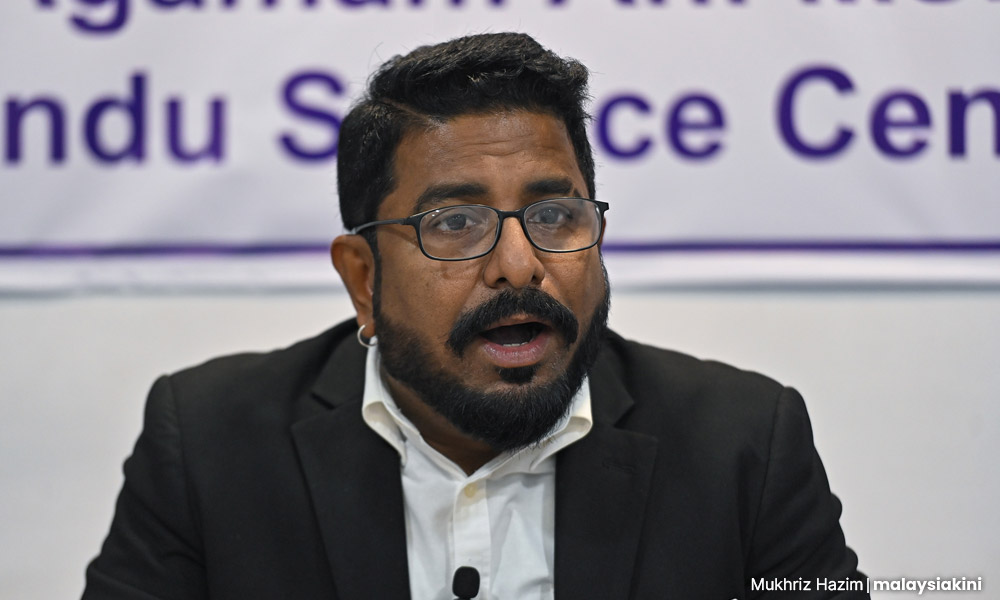
Social activist Arun Dorasamy
He also questioned the status of a special task force announced in April 2019 by then-IGP Fuzi Harun to locate and repatriate Prasana.
‘I’ll wait for you’
As of today, Indira has not seen Prasana for more than 16 years, except for a brief glimpse in 2010 at a court hearing.
On Prasana’s 14th birthday in 2022, Indira told Free Malaysia Today that she wondered what her daughter looked like.
“I think she will probably look like her elder brother. Or perhaps she may have taken after me.
“She must be a beautiful girl now. I wish I could buy her a gift.
“I’ll wait for you, Prasana, until my last breath,” she said.
He also questioned the status of a special task force announced in April 2019 by then-IGP Fuzi Harun to locate and repatriate Prasana.
‘I’ll wait for you’
As of today, Indira has not seen Prasana for more than 16 years, except for a brief glimpse in 2010 at a court hearing.
On Prasana’s 14th birthday in 2022, Indira told Free Malaysia Today that she wondered what her daughter looked like.
“I think she will probably look like her elder brother. Or perhaps she may have taken after me.
“She must be a beautiful girl now. I wish I could buy her a gift.
“I’ll wait for you, Prasana, until my last breath,” she said.
***
My heart bleeds for Indira - frigg the useless complicit police
SUE PDRM PIG IGP LIKE WHAT FRIENDS OF PASTOR KOH AMRI DID.....NO NEED TO WAIT...TAKE THE BANGSAT MADANI HAMAS LOVER BROTHERHOOD OF ISLAM SH*T TO THE CLEANERS.....LETS HOPE ALSO $10000 / DAY PRECEDENT IS CONTINUE AS IT HAS BEEN SET....DO IT DURING SABAH ELECTION IS BEST.......SABAHANS STAND WITH MRS GANDHI......LETS START THE PROCESS TO SUE...DO NOT WASTE TIME MARCHING!!! MONEY TALK BULSH*T WALKS!!...
ReplyDelete16 x 365 x 10,000 =RM58,400,000
ReplyDeleteand counting.
Precedence Set.
only during period proven that police had been responsible
DeleteThe 3R Hulubalang Deep State always wins.
ReplyDelete